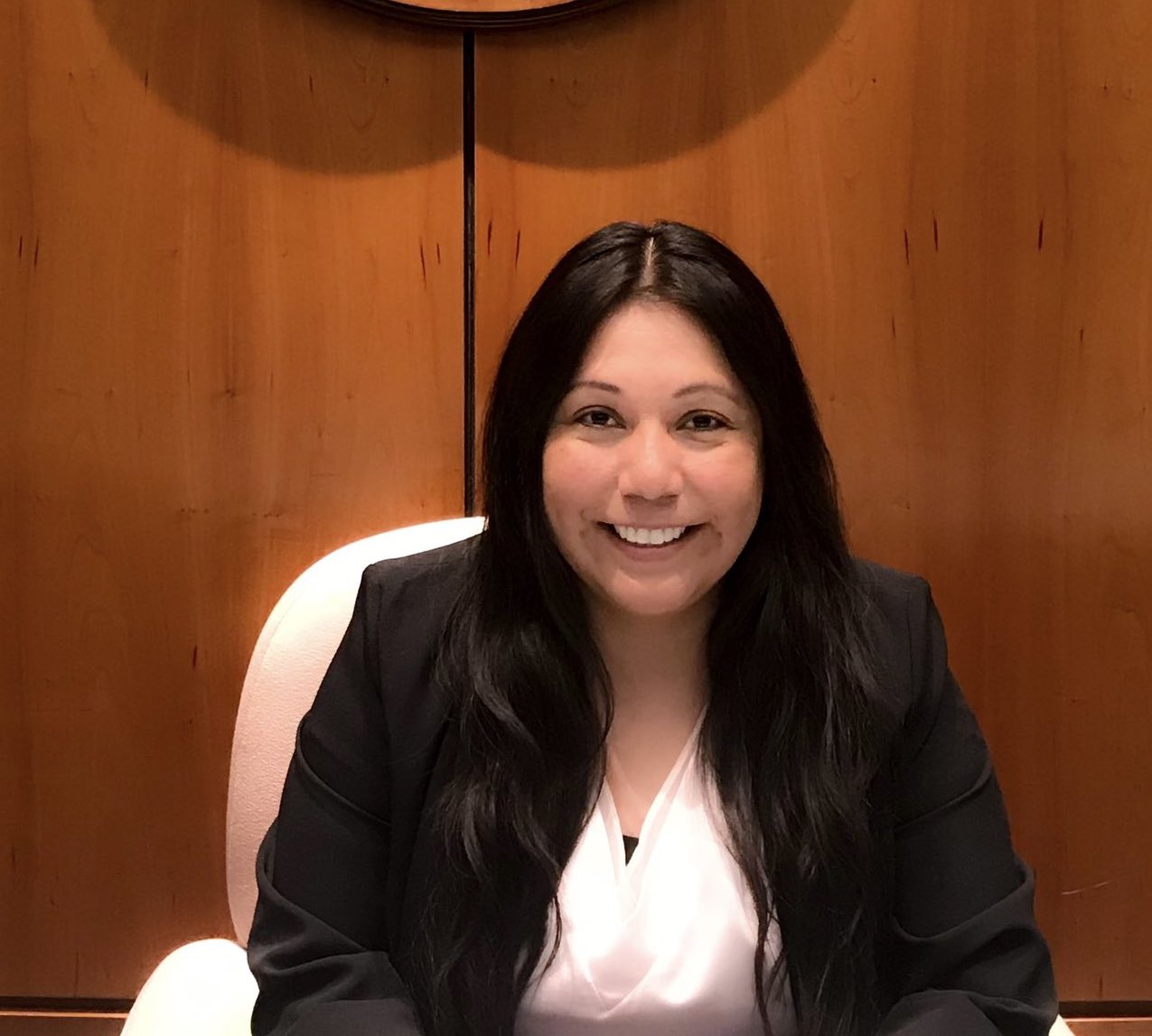
- Details
- By Jenna Kunze
Georgene Louis is a member of the Acoma Pueblo, a single mother, an ultra marathon runner, a lawyer, and, for some, a flicker of hope for Indigenous people and beyond.
At the heels of Rep. Deb Haaland’s nomination to Interior Secretary — a historic pick by President Joe Biden that would make Haaland the first Native American to be named to a Cabinet post in U.S. history — Louis, a five-term New Mexico state representative, announced she would run to fill Haaland’s vacating seat on Jan. 4. The state lawmaker joins three other Democrats who have filed for candidacy, including Rep. Melanie Stansbury and Senator Antoinette Sedillo Lopez, and Albuquerque attorney Randi McGinn. Louis is the only Native candidate.
Louis, who has worked closely with Haaland and describes their pueblos as neighbors, said that the expected loss of the Congresswoman’s voice in the House inspired her to run.
“We need to ensure that the values that she reminds people about continue,” Louis said over Facetime from her office at the Pueblo of Tesuque, where she works as the tribe’s attorney. “And we want to, again, make sure that Native Americans have a seat at the table and are able to share our voices.”
As a single parent who worked her way through college and law school, Louis said her lived experiences are similar to constituents in New Mexico’s 1st Congressional District, an area that’s largest voter base lives in Albuquerque.
“I come from a working class family,” Louis said. “The district I currently represent is comprised of Hispanics, working families, and so people are trying to live paycheck to paycheck. I've experienced that as a single mom when I was going to school, working and also providing for my daughter. I understand what they're going through.”
While Rep. Haaland isn’t able to dole out an endorsement until she’s confirmed by the Senate, other New Mexicans have been quick to champion Louis as their pick for the seat.
Acoma Pueblo, which sits about 40 minutes west of Albuquerque by car and is where Louis grew up, has endorsed their tribal member as a natural leader for a diverse group of New Mexicans.
Pueblo governor Brian Vallo said Louis has added to the momentum of young Native American women seeking a seat at the table, such as Sharice Davids (Ho-Chunk Nation) winning a Representative seat for Kansas in 2018, and Haaland’s historic nomination to a cabinet seat.
“I think her leadership speaks for itself,” he said. “(Louis) really added significantly to this movement of empowerment and leadership of women in these levels of government,” he said. “We have to support her, she’s of our own. She’s set a new bar for the Pueblo and certainly for young Acoma women... and Native American women in general.”
The state’s 1st Congressional District is nearly half white, 42 percent Hispanic, five percent Native American and less than three percent Black and Asian, according to census data.
Shaun Tsabetsaye is a Zuni Pueblo member and constituent in Louis’s current district, District 26, who has been a strong supporter of Louis since she was elected to the State Legislature in 2013. His attention was piqued by a letter Louis sent her constituents outlining what she was working toward.
“It was amazing to me to see a Pueblo person who could serve not only Pueblo people but all people,” Tsabetsaye said.
Tsabetsaye eventually began volunteering on Louis’s campaign, canvassing and collecting signatures in subsequent elections.
“The Pueblo people have been in New Mexico much longer than anyone else, and we haven’t had a voice in Congress,” Tsabetsaye said. “I think having Deb Haaland in Congress provided us to have a chance to have a voice, but her nomination leaves another void that could only possibly be filled by another Pueblo person.”
The New Mexico Secretary of State’s Office announced in December it will call for a special election when Haaland vacates her seat. Each of New Mexico’s major political parties may nominate a candidate to run in the special election, which must be held no more than 91 days after the date of vacancy.
More Stories Like This
Native News Weekly (August 25, 2024): D.C. BriefsDeb Haaland Earns Endorsement From Communications Workers of America Local 7076
University Soccer Standout Leads by Example
Two Native Americans Named to Democratic Congressional Campaign Committee's“Red to Blue” Program
Cheyenne River Youth Project Hosts Young Women’s Winter Camp as Part of Lakota Culture Internship
Help us defend tribal sovereignty.
At Native News Online, our mission is rooted in telling the stories that strengthen sovereignty and uplift Indigenous voices — not just at year’s end, but every single day.
Because of your generosity last year, we were able to keep our reporters on the ground in tribal communities, at national gatherings and in the halls of Congress — covering the issues that matter most to Indian Country: sovereignty, culture, education, health and economic opportunity.
That support sustained us through a tough year in 2025. Now, as we look to the year ahead, we need your help right now to ensure warrior journalism remains strong — reporting that defends tribal sovereignty, amplifies Native truth, and holds power accountable.
 The stakes couldn't be higher. Your support keeps Native voices heard, Native stories told and Native sovereignty defended.
The stakes couldn't be higher. Your support keeps Native voices heard, Native stories told and Native sovereignty defended.
Stand with Warrior Journalism today.
Levi Rickert (Potawatomi), Editor & Publisher

